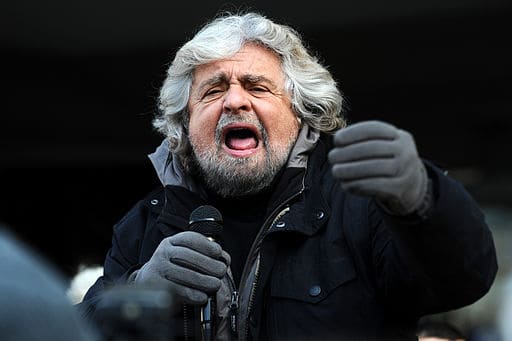The collapse of the Italian government was anything but unexpected. Ever since the demagogic League (Salvini’s Party) and the populist Five Stars Movement (5SM) signed a deal – they never dared call it an alliance – political analysts have realized that their platforms and constituencies were too different for the agreement to last.
Eventually, the 5SM realized that they were going to be crushed by the League’s deadly embrace.
Under the Italian constitution, elections are not necessary to form a new government if the new coalition wins a majority in the Parliament. Thus, the 5SM is contemplating an alliance with the Italian Democratic Party, the major opposition party and an opponent of the 5SM.
Since the 5SM seized the limelight on the political stage about ten years ago, few commentators and politicians have remarked that the traditional political establishment should have recognized the new political demand represented by the 5SM.
On the contrary, they disparaged its growing political constituency as populist, subversive and utopian. As a consequence, the 5SM, which currently holds twice as many seats as any other party in the Italian Parliament, had to form a coalition government with the demagogic League, also a former opponent.
The foreseeable failure of co-operation between the 5SM and the League gives rise to new political scenarios that should also be explored in other European countries, and in the USA, where demagogic parties and leaders are threatening the foundations of aging democracies.
Italian politics suggests that we need to distinguish between an acceptable populism, which responds to unprecedented political demand; and subversive, demagogic cults of personality that challenge the basic values of democracies. Having overlooked this evident distinction, Italian democracy has risked overthrow by a dangerous – and, fortunately, unlikely — alliance between the demagogic, proto-fascist League and the 5SM.
Now, the possible alliance between the Italian Democratic Party and the 5SM presents a scenario that other countries’ leaders would do well to consider.
The usual conceptual frameworks – including the form of dialogue I use here – no longer comprehend the workings of contemporary politics. The idea that traditional parties can control their constituencies is obsolete. Traditional parties still speak to vested interests, but they cannot communicate with a diffuse citizenship to consolidate enduring constituencies.
Today, political communication happens in the air, inundating people with never-ending talk-shows that are immediately echoed on social networks. Info-tainment is popular as never before. Television audience data show that people have even more fun talking politics than football.
The problem is that citizens (as well as football fans) do not participate in the game. But when their interests take a direct hit, people react with an apparently irrational protest vote. Does it mean that elites utterly dominate public opinion? Or are the citizens calling for a senseless populist direct democracy?
To both questions the answer is No, albeit there is some truth in both statements.
The 5SM operates in this erratic no-man’s land. Its goals are unpredictable; it often vacillates about issues that are foundational to the old political parties. Could the 5SM favour radical reforms? Yes, especially about issues such as environmental policies, new forms of labour organization, immigration, citizenship, etc., namely the most urgent and less ideologically structured contemporary problems.
The 5SM offers a new vision outside the old paradigms, expressed in contemporary language and emotions. Of course, there are contradictions in its platform and policies.
We need to distinguish, though, occasional contradictions due to inexperience, political opportunism, or even confusion, on the one hand; and, on the other, we need to accept that the movement is inherently contradictory, constantly shaped by people’s opinions. Its political line is not rooted in a preconceived ideology. That is why the 5SM does not call for strong governments and leaders.
The possible alliance of the 5SM with the more experienced Democratic Party can help reduce some extremist traits typical of most new political movements. It would also be a necessary step toward the reciprocal recognition of both Democratic Party and 5SM, which until now have accused each other of villainy.
In the future they could become the dialectical axes of a new political synthesis. They could stop the growth of the extreme demagogic, violent and proto-fascist right-wing movements that are haunting Europe, and indeed the United States.





